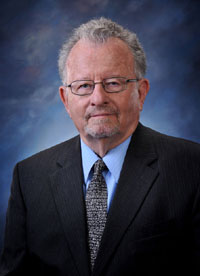
The USA aided the mujahidin against the Soviets, and some note that Osama bin Laden was also aided by the US when he left his native Saudi Arabia/Yemen to back the mujahidin in Afghanistan. While the CIA had no proof of his involvement in the 9/11/01 attack in New York, the agency did have knowledge of his planning the previous bombings of the US embassies in Tanzania and Kenya. This was enough for the USA/NATO coalition to go after bin Laden in war with Afghanistan, later capturing him in Pakistan.
Talks with the Taliban should include Pakistan, which is much more than a neighbor. The Taliban (Pashto word for students) are not an ethnicity but a religious brotherhood made up of mostly Pashtuns. The British drew the border between Afghanistan and (then)India in 1896 (the Durand Line) to establish a buffer zone between British and Russian interests. After 1947, {western} Pakistan was created as an independent state. The Durand Line divided the 60 million Pashtuns, leaving them in both western Pakistan and eastern Afghanistan, the latter having not yet recognized the Durand Line. The great majority of Pashtuns are Sunni Muslims, but a minority are Shia. In short, the coming talks with the Taliban will present an ethno-religious-political-linguistic challenge to all the countries and leaders involved.
With hope for a peaceful outcome, here are some questions to keep in mind:
What role will western-backed Afghanis play in the new Afghanistan? President Ashraf Ghani (a Pashtun) and his wife, Rula (a Maronite Lebanese) met at the American University of Beirut. He is a cultural anthropologist by training. She has devoted her time to Afghani women’s issues and is said to speak Pashto and Dari along with Arabic, English and French.
How will the “new Afghanistan” relate to Iran after the USA left the international nuclear agreement and has continued to see Iran as backing terrorism? China has the most to gain from the USA’s withdrawal. Iran (95+% Shia) was strengthened by the Shia victory in Iraq and is cooperating with Russia in Syria; and with the Shia Hezbollah in Lebanon. Some US special forces in Iran have been limited to the Kurdish areas in the northwest. If it is true that President Trump wants to please President Putin, Trump will not be able to carry out his most recent threats (7/22/18) against Iran’s leader Rouhani.
What will come of Erik Prince’s idea of a private army in Afghanistan? According to the Washington Post, (8/9/2017) his “Strategic Economy of Force” would change the nature of US-Afghan relations. If it becomes secretive, it will appear to be a repeat of the clandestine and illegal backing by some US operatives, of the Contra’s ambitions to overthrow the Sandinistas in Nicaragua in the mid-1980s—the infamous “Iran-Contra Affair.”
On Austin College’s campus, a six-sided peace pole was erected after the USA invaded Afghanistan in late 2001. The English side says “May peace prevail on earth.” Then there is Arabic, Hebrew, Persian, Urdu, and the sixth is in Pashto, which uses the Arabic script.
Henry H. Bucher, Jr., Ph.D.
Associate Professor Emeritus of Humanities
Austin College